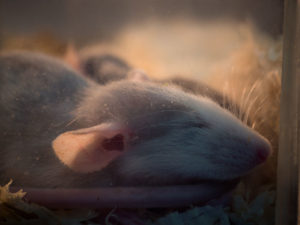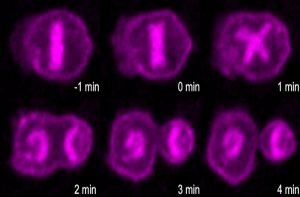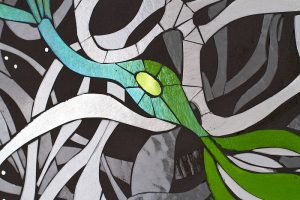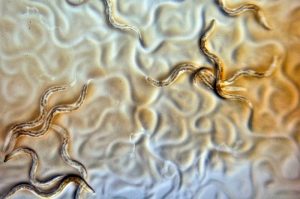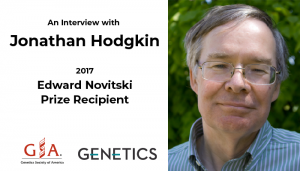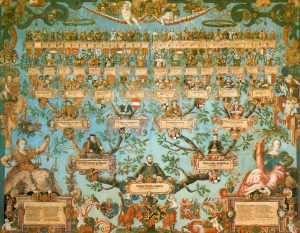Enter your address to receive notifications about new posts to your email.
Articles tagged Caenorhabditis
(44 results)
-
Sleep control gene conserved across millions of years of evolution
AP-2 transcription factors, which control sleep in flies and worms, are confirmed to do the same in mammals.
-
New Faculty Profile: Aakanksha Singhvi
New Faculty Profiles allow GSA members who are establishing their first labs to introduce themselves to our wider community. If you’d like to submit your profile, please complete this form. Aakanksha Singhvi Assistant Member Division of Basic Sciences Fred Hutchinson Cancer Research Center Lab website Briefly describe the ongoing and expected research projects as your lab gets up…
-
Feedback is welcome
Analysis of insulin-like signaling in C. elegans reveals extensive positive and negative feedback regulation. The insulin-like signaling system of nematode worms is comparable to that of more complex organisms; it helps regulate a wide range of the animal’s biology, including metabolism, growth, and development. This system is remarkably flexible, with the ability to maintain a…
-
Unequal divisions of death
Apoptotic pathway promotes asymmetric cell division during C. elegans development. Cell division doesn’t always produce identical daughter cells; often, the demands of multicellular development require cells to split into two quite different daughters with quite different fates. These “asymmetric” divisions are needed so that cells can differentiate and specialize, and some cells are even programmed…
-
Genetics Society of America Awards 2019 GSA Medal to Anne Villeneuve
The Genetics Society of America (GSA) is pleased to announce that Anne Villeneuve, PhD, of Stanford University is the recipient of the 2019 Genetics Society of America Medal. Villeneuve is recognized for her research on the mechanisms governing chromosome inheritance during sexual reproduction. Her research focuses on meiosis, the specialized cell division program involved in…
-
Mitochondria on the mind
Mitochondria cell-autonomously regulate the secretion of neuropeptides in C. elegans. Neurons are hard-working cells that need a lot of energy to do their jobs, so it’s no surprise that they are highly dependent on their mitochondria to function properly. Yet these organelles do much more for cells than simply produce energy. In GENETICS, Zhao et…
-
Midnight munchers: starved worms can’t sleep
Food-deprivation inhibits the stress-induced sleep response in C. elegans. For many animals, the essential physiological drives of sleep and food are intimately linked. You might have noticed this if you’ve ever stayed up far too late and found yourself craving a snack. Yet because it’s impossible for most animals to eat and sleep at the…
-
A new tool for longevity and mating studies in C. elegans
By borrowing a system found in plants, researchers can turn off sperm production in an inducible, reversible, and non-toxic manner Let’s say you want to study how your favorite gene affects aging. You pick Caenorhabditis elegans for your study because it is one of the most important models of aging, and you put some of…
-
‘Worm’ing through chromosome 21 for overlooked Down syndrome genes
There’s no doubt that an extra copy of chromosome 21 is what causes Down syndrome. There’s a lot of doubt, however, over which particular gene—or combination of genes—on chromosome 21 is the actual cause of its symptoms. To flesh out our understanding, geneticists must grapple with this large chunk of the genome that includes more…
-
Frontiers of Knowledge: An Interview with 2017 Edward Novitski Prize Recipient Jonathan Hodgkin
The Genetics Society of America’s Edward Novitski Prize recognizes a single experimental accomplishment or a body of work in which an exceptional level of creativity and intellectual ingenuity has been used to design and execute scientific experiments to solve a difficult problem in genetics. The 2017 winner, Jonathan Hodgkin, used elegant genetic studies to unravel…
-
Germline immortality in C. elegans depends on epigenetic inheritance
Inheriting a trait from a grandparent doesn’t always involve their DNA sequences. In many organisms, some traits can be passed down for multiple generations via non-sequence based mechanisms, a phenomenon called transgenerational epigenetic inheritance. The most familiar example is that human disease risk might be influenced by the lifestyle of a person’s grandparents. But by…

